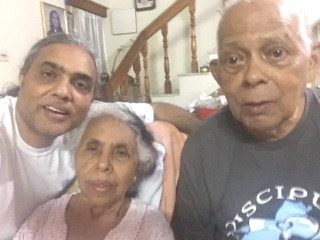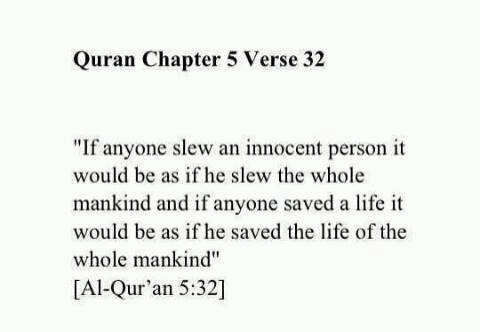Frequent guest blogger, Father Satish Joseph, offers the following thoughts about aging parents:
Think about it! There are countless books on preparing people for their pregnancy, their first
child, and for the perils of parenthood. Young parents devour every information they get so
that they can be good parents. However, once children leave home, there is no book that
prepares them to nurture their aging parents, in return. There are ample books that help
children prepare their parents for aging, but there is barely any help available for children
preparing themselves for aging parents. For me, it was a learning by doing – doing the wrong
things, making many mistakes, having countless arguments, and sometimes total breakdown of
communication.
Realizations about the care of aging parents came to me very gradually. It began as a
serendipitous revelation. One morning, I was massaging dad’s limbs with his special herbal oil.
His hands and legs were all bones. His skin was wrinkled and his lower limbs were coal black. As the massage made him sit back and groan in relief, I realized how frail and helpless he had
become. At this very moment, an awesome sense of privilege came over me! Once, I too was a
helpless baby. The hands that I now held were the very hands that carried me safely during
those days and cared for me unhesitatingly. As I massaged his body, it was my turn to return
the favor. A day comes when our parents become as helpless as we were as infants. Not every
child gets the privilege to return the favor. But to those of us that do, taking care of our aged
parents provides us the privilege to nurture the ones to whom we owe our very life. This is an
awesome and holy privilege.
I did not reach this new realization without intense struggles. I remember my teenage years. I
thought that I knew it all. I remember thinking to myself that my parents were out of touch
with reality, or with contemporary life-styles, thoughts, and attitudes. How often did I think
that they were plain dumb? Unfortunately, many of us carry this attitude into our parent’s later
years. It’s true that our parents belong to another generation! However, they bring the wisdom
gained by their life-experiences to the table. The reality simply is this – wisdom teaches them to
disregard the things that we might consider paramount. They are never outdated. On the other
hand, we must resist the temptation to impose the values and priorities of another generation
upon them. Newer does not always mean better. Our parents know that. When my parents
retired and came to settle in the home they now live in, I remember coming home every
vacation with new gadgets, new accessories, new conveniences from the United States. I
remember surprising my parents with new utilities to which they could not easily adapt. They
would politely advise me not to waste my money. What they were really telling me was that
after I would leave, it would become burdensome to adjust to the novelties that they neither
desired nor were helpful to them. Technology is only one example. We children can learn much
by allowing to let our parents live in an age that they are comfortable with. It might not be what
we want. But it is what they want. We must allow them to live their lives. The next time we
pray, “Lead us not into temptation,” let us pray that we avoid the temptation to live our lives
through our parents.
The bitterest argument I had with my father was about his house-keeping habits. One vacation,
I came home to find that the house was no longer as clean as I remember during my childhood
days. Even though my parents have a maid, I found that there was always room for
improvement. One day, when dad was out and about, I began cleaning and rearranging dad’s
room with the zeal of an amathophoebic. Dad returned home to find his world turned upside
down and inside out. He was livid. This was his home, his space, and his world. As far as he was
concerned, an intruder had come and vandalized his space. Whereas earlier he could find even
the things he only occasionally used without effort, it had now become a chore to find his
everyday things. His frustration was limitless. Already burdened with the complexities of aging,
I had further burdened him by compelling him to relearn to navigate his own space. I did not
understand dad’s reaction for many more years. I had not understood that I had meddled with
him and not just his room. I had made him feel that he was failing. That feeling does not aid our
aging parents in any way.
My zeal for cleanliness affected dad even more during the later years of his life when his
movements had become more restricted. I came home one time to find that the medicines,
ointments, herbal oils, phone directories, and mundane objects for daily use were spilling into
the living room, to the dining table, and more embarrassingly, onto the coffee table. Mom was
aware of the changing standards of tidiness, but she was aging with him. She understood this
more than I did. I, on the other hand, was more concerned about the judgements that the
many relatives, friends, and visitors would make about our unseemingly untidy home. It took
another round of arguments for me to finally understand that dad was merely readjusting his
home and space to his new physical reality. Accessibility to the things he often used was more
important to him than socially enforced etiquettes of tidiness and hospitality. After all, this was
his home. This was his space where he had to learn to age with grace. This was his world and he
had the freedom to keep it the way he found it most helpful to him. Today, our home is not the
best kept house or the tidiest or the trendiest. I assure you of one thing though – it is
undoubtedly the best home I could ever enter. The world’s two best people live there! That is
all that matters.
The most important thing for us to remember is that our parents are not perfect. After all, it
was our very first parents whose sin made human life as laborious as it now is. Perhaps, our
parents made mistakes that affected us in one way or another. Perhaps they made decisions
that we question today. Divorce, personality traits, mental health issues, addictions, giving into
favoritism – these are all human frailties that affect the parent-child relationship. As our
parents age, many children never forget their parents’ shortcomings. Many children fail to
forgive them and let bygones be bygones. It might be worth remembering that we were not
perfect infants or perfect children, and yet our parents cared for us. It might also be worth
remembering that we continue to live as imperfect adults. We must never hold our parents to
the perfection that we ourselves cannot fulfil. May this never have been our story, but if it is
needed, may we never withhold forgiveness from our parents. Of all the people in the world,
they deserve it the most.
The greatest gift that we can give to our parents as they age is to be a family that is united and
in peace. Sibling rivalry, sibling unrest, sibling conflicts often leave our parents anxious. Parents wish for all their children to do well. Nothing makes them happier than knowing that their children get along with each other. When they leave the earth, our parents need the assurance that we will live in harmony.
There is one other gift our parents quietly yearn – our time and our presence. Again, it was a
serendipitous realization. I happened to be home after my dad’s eighty-second birthday. Mom
was seventy-five years old then. It was customary for me to come home to visit my parents
once a year. This was not because I did not want to visit them more often, but because I lived
9000 miles away in another Continent. Financially too, at least in the beginning, it was not easy
to afford frequent visits. A frightening truth dawned upon me on that day. I realized that at the
current rate of my visits, if my dad lived up to be a hundred, I would see him only eighteen
more times. I would see my dear mother only 25 more times. That day, I decided that I would
visit them at least twice a year and more, whenever I could. I also decided that I would call
them every day without fail. I did this for two reasons. First, I came to realize that my single call
each day was the highlight of my parent’s otherwise mundane life. My second reason is a little
more selfish. There will come a day when I might have all the time and money in the world, but
my parents will not be there for me to visit. A day will come when I might want to call them but
there will not be anyone at home to pick up the phone. It is now, when I have them, that I must
be with my parents as often I can. I visit too many elderly parents in nursing homes whose
children live in the same city but fail to visit them as often as they should. They fail to call their
parents as often as they could. Parents who devoted all their time to us when we were infants
deserve the love and affection they once offered us.
The more realizations I had about my aging parents and the hard lessons I learnt from their life,
I said to myself, “Why didn’t someone tell me about these things?” Nobody prepares you for
your aging parents. It’s not that there is a book about it!



